‘Enough is enough’: nervous Liberal MPs push for Trudeau’s exit before the next election
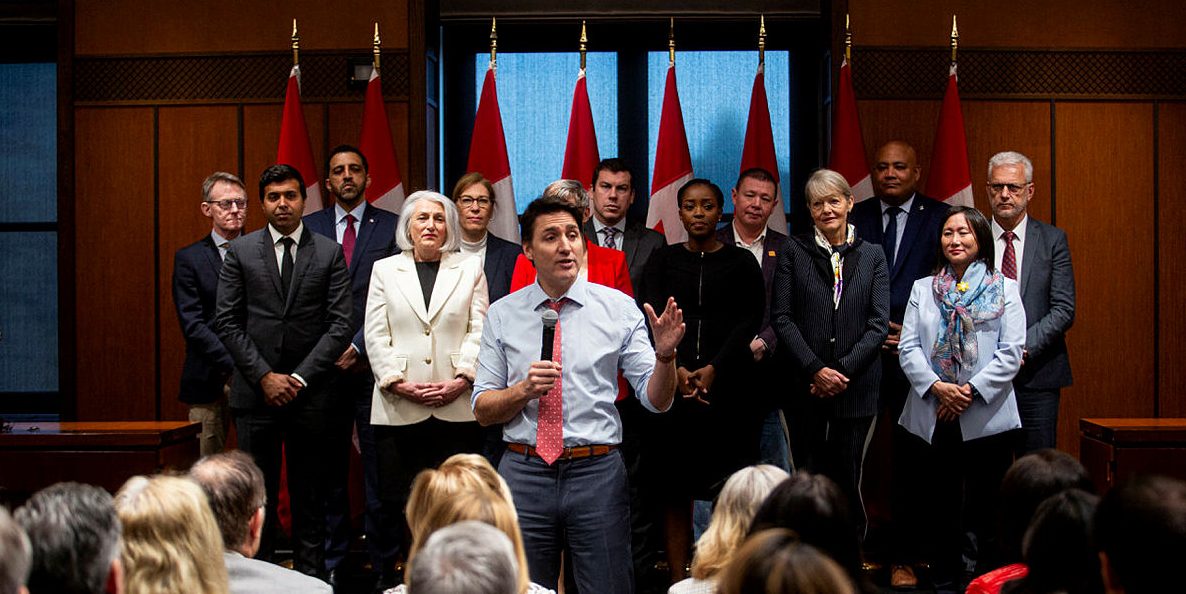
Liberal MPs have been holding discreet meetings in small groups over the past few weeks to come up with plans to urge Prime Minister Justin Trudeau to step down, according to multiple Liberal MPs sources.
Those quiet efforts spilled into public following reports of a pledge some have signed to solidify their resolve to stand united should Trudeau (Papineau, Que.) resist that call. More than 20 MPs have put their name to the agreement, sources told The Hill Times.
“At the end of the day, this is out already, and this is extremely damaging,” said one Liberal MP who is directly involved in behind-the-scenes conversations calling on Trudeau to resign.
In the wake of two byelection losses in historically-safe Liberal seats—Toronto–St. Paul’s, Ont., in June, and LaSalle–Émard–Verdun, Que., in September—and continued polls projecting Conservatives in a double-digit lead, the MP said more in the caucus are willing to stand against Trudeau, or speak about the prospect of a new leader.
“That’s really the PM’s call now, and [the PMO] better be processing that because this is not a good situation for them.”
The Prime Minister’s Office declined a comment for this article.
Liberal sources told The Hill Times that the pledge is a commitment to stand united if, and likely when, the PMO pushes back against those calling for Trudeau’s resignation. According to the sources, more are expected to sign the agreement by Tuesday as more MPs have shown interest in being part of this group, an effort that was first reported by the CBC and the Toronto Star. All the sources spoke to The Hill Times on a not-for-attribution basis due to the sensitive nature of caucus discussions.
No MP who signed the document was given a copy or allowed to take a picture of it. According to Liberal sources, the MPs who signed the document have also considered the possibility that Trudeau may ignore their demand, potentially leading to internal party conflict—a scenario for which they are prepared.
“Is that [MPs speaking up] good for [Trudeau] or the party? No. The best thing for him is to make his transition immediately,” said the MP. “If he doesn’t, it’s going to be a cold war, so to speak, and he will not end up in a good situation even if he survives it.”
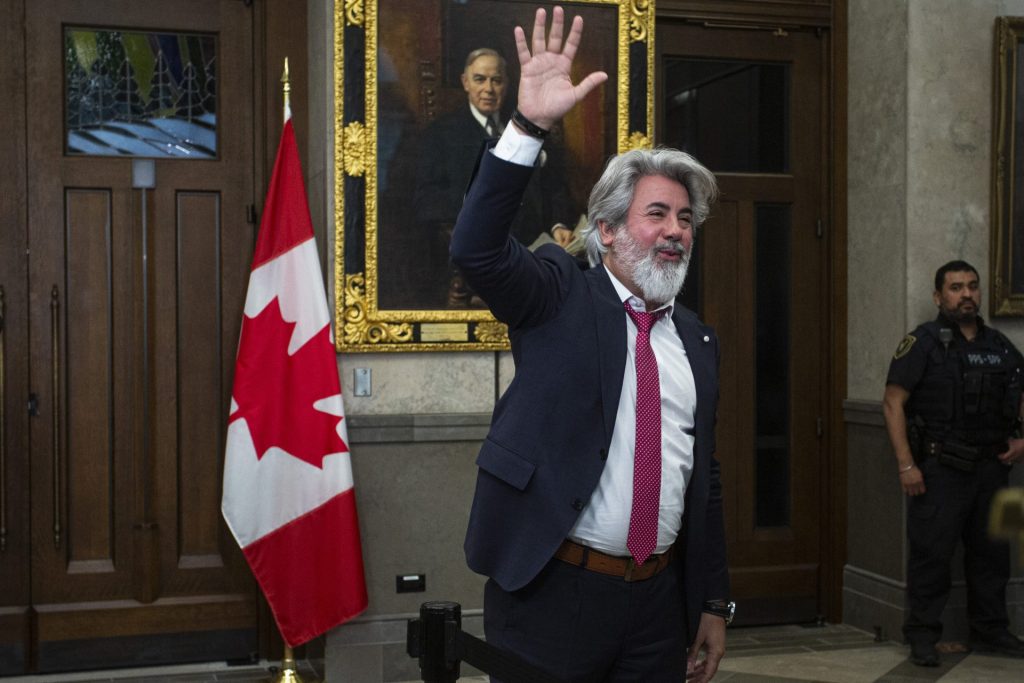
Tensions have escalated in regional caucus meetings since the June byelection loss, and a failed attempt by some MPs to call a national caucus meeting over the summer. During Parliament’s first week back in September, the Quebec regional caucus was particularly heated, held days after the Montreal byelection, which was the same week then-minister and Quebec lieutenant Pablo Rodriguez’s (Honoré-Mercier, Que.) announced his resignation from cabinet and caucus.
Because Trudeau doesn’t attend the regional caucus meetings, MPs have been more willing to air their frustrations. While Trudeau’s staff are typically present, last week the Atlantic caucus asked the PMO representative to leave, said one source.
The regional meetings take place just before the national caucus meetings, held every Wednesday morning when the House is in session. During each national caucus meeting, the regional and issues-based caucus chairs provide brief reports on the key discussions and pressing issues raised by their members.
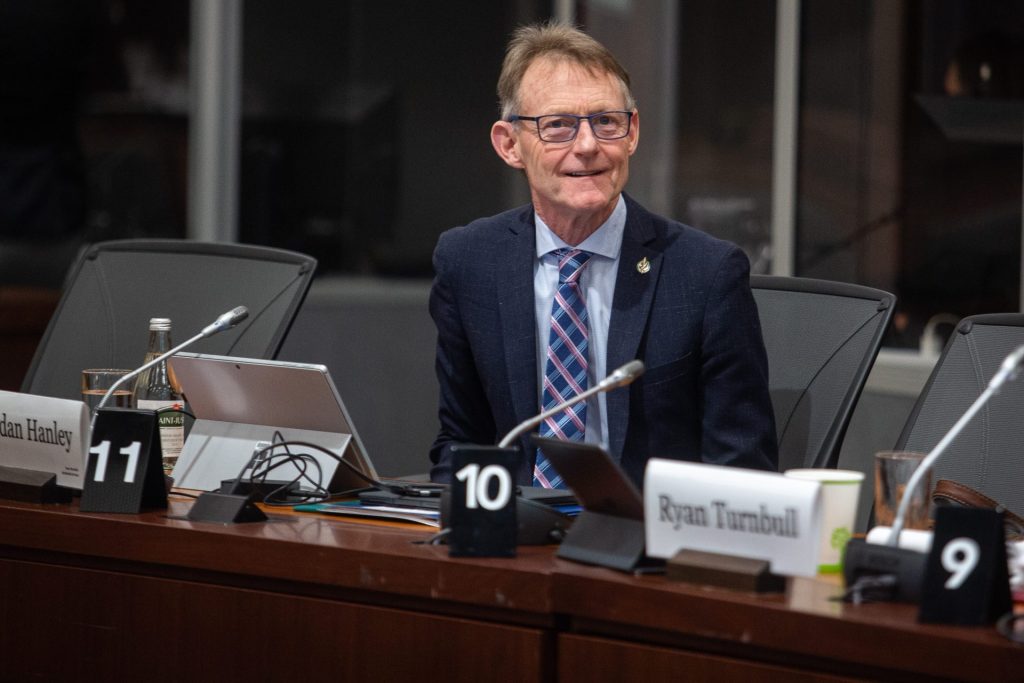
At the national caucus meeting on Oct. 2, Yukon MP Brendan Hanley, chair of the rural caucus, told colleagues that his caucus had an “honest conversation” and believed it was time to discuss party leadership and future direction “in this room,” according to a Liberal source. Hanley did not respond to interview requests from The Hill Times. Although Trudeau was in the room when Hanley made this remark, no further discussion occurred.
The next week, at the Oct. 9 national meeting, Kody Blois (Kings-Hants, N.S.) expressed a similar sentiment. As chair of the Atlantic caucus, Blois shared to the national group his caucus had a “difficult, frank, and open conversation” about the future of the party, as first reported by Toronto Star. Initially, Blois spoke in a “meek” tone, recounted one MP, but repeated his statement louder after colleagues said they couldn’t hear him. Trudeau was not present at the caucus meeting because he was attending the ASEAN summit in Laos.
And, during last week’s women’s caucus meeting, MPs engaged in a “very animated” discussion about the party’s declining popularity and emphasized the need for a leadership conversation ahead of the next election.
Following the loss of the Toronto byelection in June, nine Liberal MPs signed and sent a letter the national caucus chair requesting a special in-person caucus meeting, but the leadership declined the request. At the time, one of the signatories—Liberal MP Wayne Long (Saint John-Rothesay, N.B.)—called on the prime minister to step down.
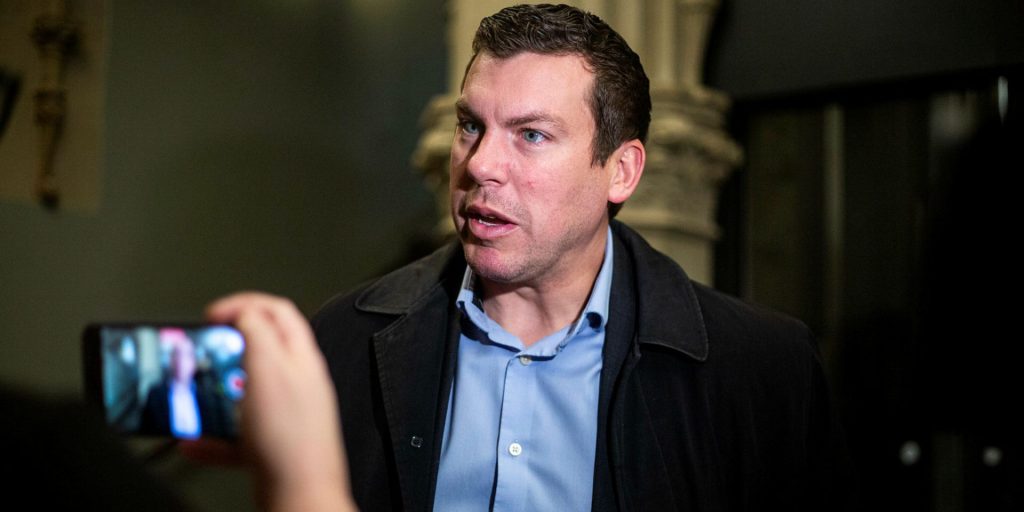
Following that failed effort, Trudeau personally called nearly all MPs in the caucus, one by one, to hear their concerns. Some politely suggested it might be time for him to step down. The situation worsened at the start of the current parliamentary sitting, after Trudeau’s hand-picked Montreal candidate lost the byelection for the seat held by a former Liberal cabinet minister.
Since last year, the Liberals have been trailing the Conservatives by double-digit margins in the national polls. Some polls have put them in third place behind the NDP. If these trends continue, some seat projections suggest that Pierre Poilievre (Carleton, Ont.) could secure a supermajority with more than 200 seats, while the Liberals could fall to fourth place, even behind the Bloc Québécois and the NDP. Jeremy Broadhurst, the Liberal Party’s national campaign director, resigned in early September. The Liberals announced on Oct. 13 that longtime senior staffer Andrew Bevan would succeed Broadhurst, with PMO deputy chief of staff Marjorie Michel serving as his deputy.
A second MP said the party has to “return to the drawing board” given these numbers.
“Canadians are asking for a change and we have to offer that change,” said a second MP.
“The party has demonstrated quite a bit of discipline, [and] extended a lot of respect to the prime minister. That’s in public. But in private, the discussions that are taking place are very, very different,” said the MP.
“On several occasions, in smaller gatherings, MPs have told Trudeau directly that ‘prime minister, we think it’s time [to go].”
In interviews with The Hill Times, dissenting Liberal MPs, as well as current and former senior Liberals, emphasized their efforts to oust Trudeau are not personal, and they have real respect for the prime minister. They said their decision to speak out is motivated by a desire to minimize electoral losses, and protect the party from a potential electoral disaster in the next election.
“Enough is enough. It’s not coming from a bad place,” said the first MP. “The vast majority of MPs are well-intentioned and thinking about the future of the party, and the well-being of the party and the country,” said the MP. “It’s not about anything else.”
A Liberal source noted most Liberal insiders and veterans are also of the view that they need a new leader.
“Every single person. That’s the problem,” said the MP. “It doesn’t matter who it is, you can bump into a Liberal on the street who’s been there for 40 years, and he’s telling you the same thing.”
One Liberal source described the gist of the document that some MPs signed.
“We love you [Trudeau] but you need to go,” the source said. “These MPs are not just signing the document, they are going all the way.”
The source said that in addition to the pledge, other backup plans are in place. These include public calls from former Liberal MPs, cabinet ministers, and other current and former prominent Liberals, urging the prime minister to step down.
Ideally, sources said, after the recent media coverage over the past two days, Trudeau would choose to step down voluntarily. However, if MPs can gather a “critical mass” of signatures, then a couple of MPs could approach the prime minister directly to convey the caucus’ collective will for him to resign.
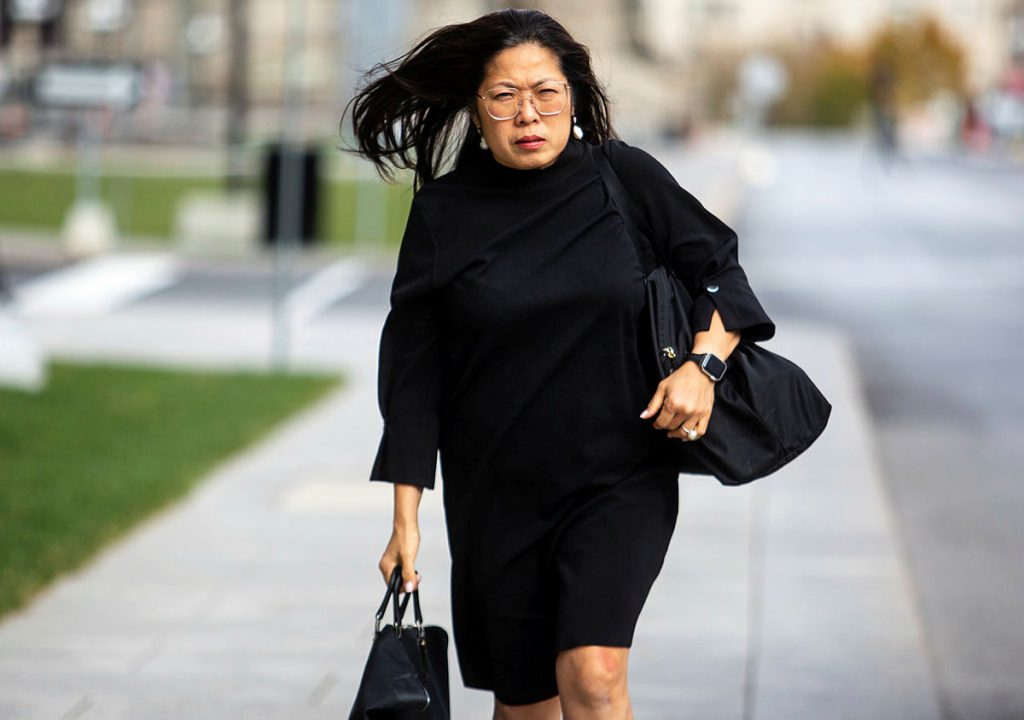
Meanwhile, International Trade Minister Mary Ng (Markham-Thornhill, Ont.) told reporters on Oct. 11 on her way back from the ASEAN summit that she was surprised that her colleagues want Trudeau to step down.
“I would say that I’m disappointed because Canadians expect us to be focusing on Canadians, and doing this work,” Ng told reporters. “I think that the conversations that we have in caucus remain in caucus.”
The Hill Times






 LICENSING
LICENSING PODCAST
PODCAST ALERTS
ALERTS













